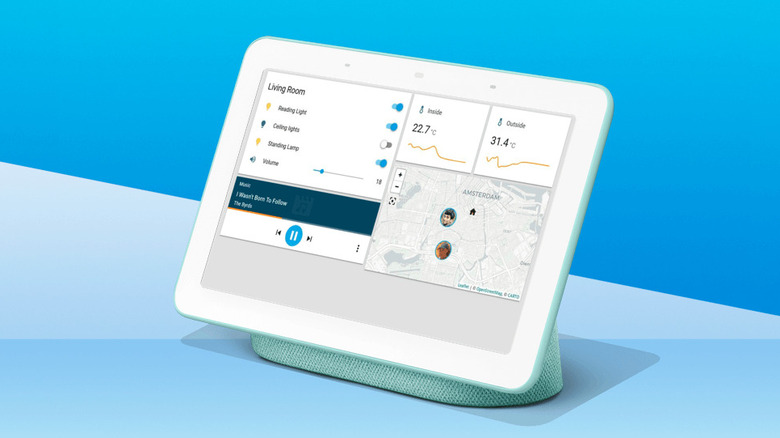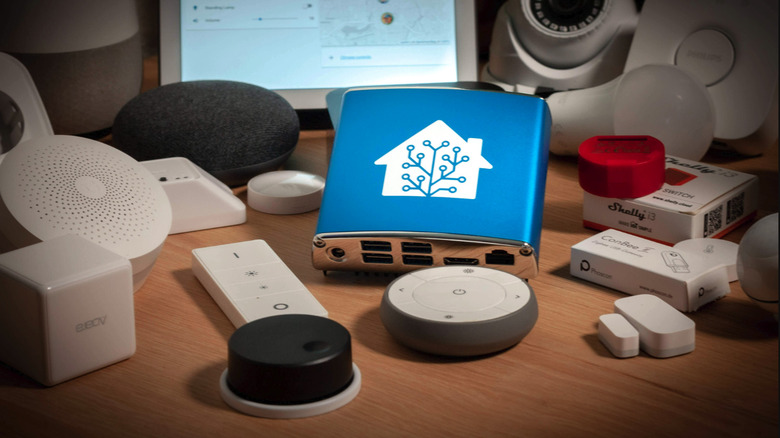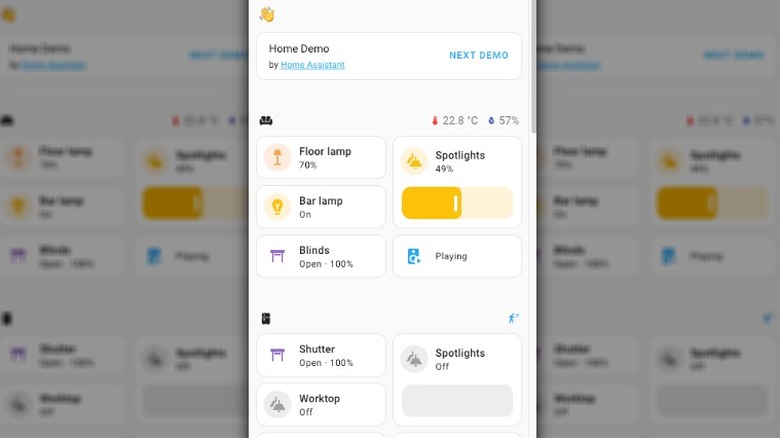Can Home Assistant Run A Smart Home Even Without An Internet Connection?
As we set out to build smarter homes, another part of our lives becomes reliant on the internet. From the dumb home devices we upgrade with a smart plug to the smart speakers that respond to our voice commands, it seems like we need a steady internet connection to keep everything up and running — or do we? Home Assistant challenges that idea. While many popular smart home platforms rely heavily on the cloud to get their job done, Home Assistant was designed to operate locally. What that means for you is this: with Home Assistant, you can run your smart home even if your internet goes out. However, that's only if you use devices that support local communication protocols like Zigbee, Z-Wave, or certain Wi-Fi configurations that can function offline.
With the right setup, Home Assistant can function almost entirely offline, running on local hardware like Raspberry Pi or dedicated Home Assistant hubs. This design makes it so that your automations and controls can often continue to work during internet outages or cloud service disruptions. If you're concerned about data privacy or live in an area with spotty internet, with the right combination of locally controlled devices in place, Home Assistant makes it possible to get all of the conveniences that come with a smart home without needing to stay online around the clock.
Home Assistant's Local Control Capabilities
What sets Home Assistant apart from other smart home platforms is that it was engineered to manage devices locally. That means your smart home can function even when there's no internet connection. While some platforms have added limited offline functionality through Thread and Matter in recent years, Home Assistant is built from the ground up for local control. In fact, many users choose to run Home Assistant on a Raspberry Pi or Home Assistant Green, making it an affordable and flexible way to power a fully offline smart home if all of the connected devices support local control.
When Home Assistant is run on local hardware like this, it can communicate directly with your smart devices over protocols like Zigbee, Z-Wave, or Wi-Fi. This type of setup allows for real-time automation and control without having to route data through external servers. For example, Home Assistant's integration with Zigbee Home Automation allows it to connect directly to Zigbee-based devices for local control without an internet connection. The same is true of Z-Wave integration, which lets Home Assistant control a Z-Wave network locally, making it possible for smart devices to function without internet access.
Limitations when operating without the internet
While knowing you can use Home Assistant to keep your smart home running when there's no internet will certainly bring you some peace of mind, it's important to understand there are some limitations. As you might already know, there are quite a few smart home devices that still work with no internet connection. However, devices with integrations that depend on cloud services – such as weather updates, or voice assistants like Amazon Alexa or Google Assistant — and remote access functionality, will stop working if your internet goes down.
Features like push notifications and remote access through the Home Assistant Companion App or Nabu Casa cloud service will also stop working if your home doesn't have internet connectivity. However, if you're at home and connected to the same local network as your Home Assistant, you can use these apps to control your devices. Home Assistant's architecture comes with some fallback options for certain automations. One thing you can do is set default behaviors for automations that would normally rely on online data to ensure they keep working if the internet goes down. To make your smart home truly offline, your best bet is to avoid (to the extent possible) purchasing devices that rely solely on cloud services and instead choose those that support local control.


